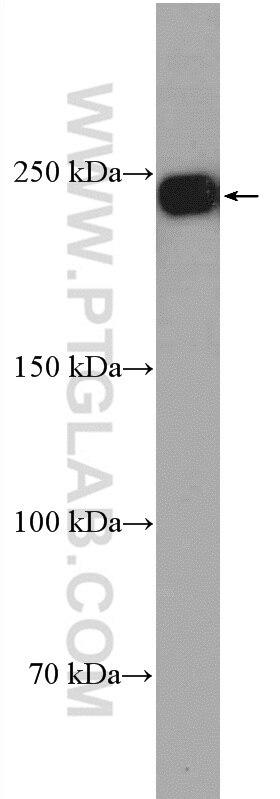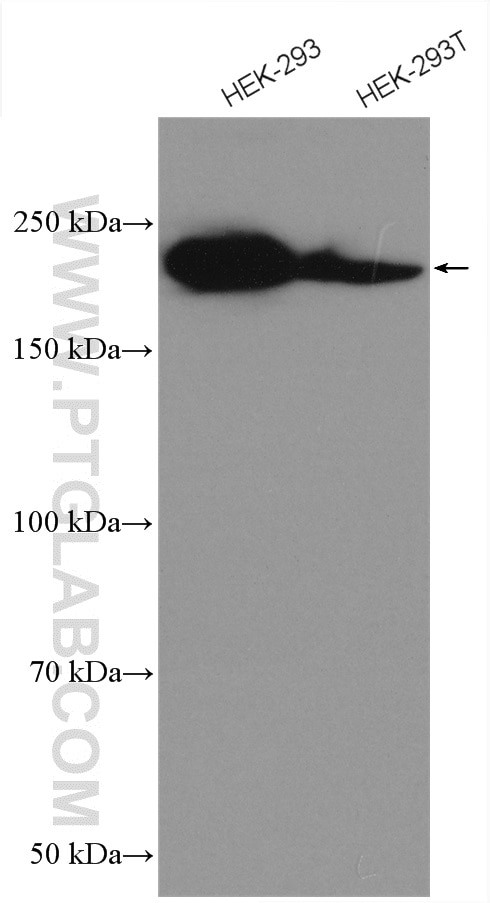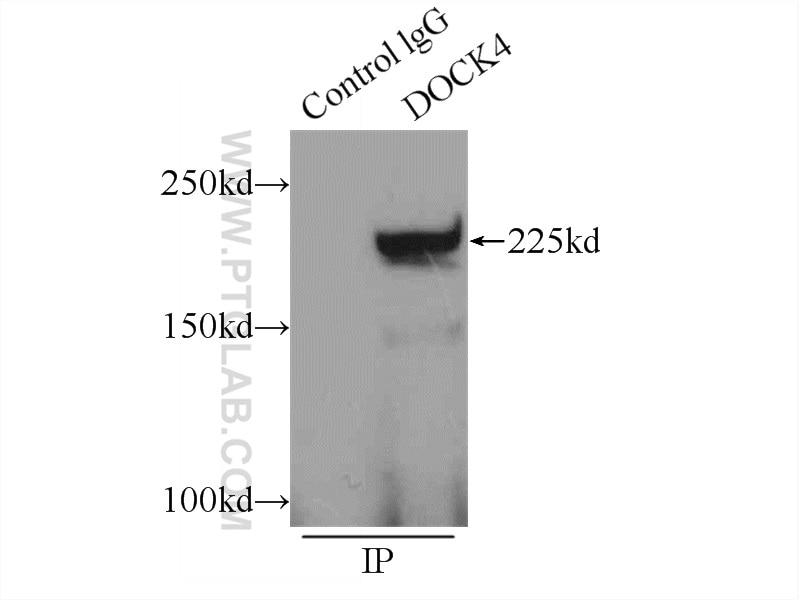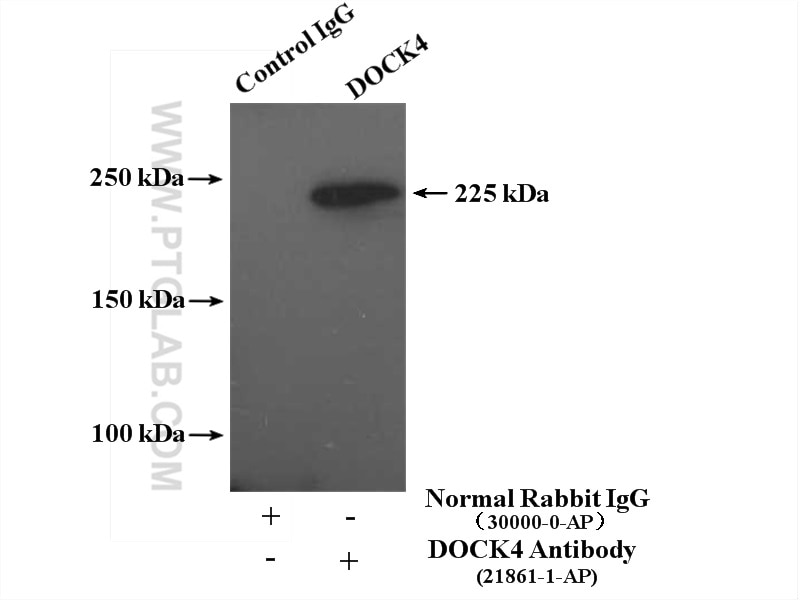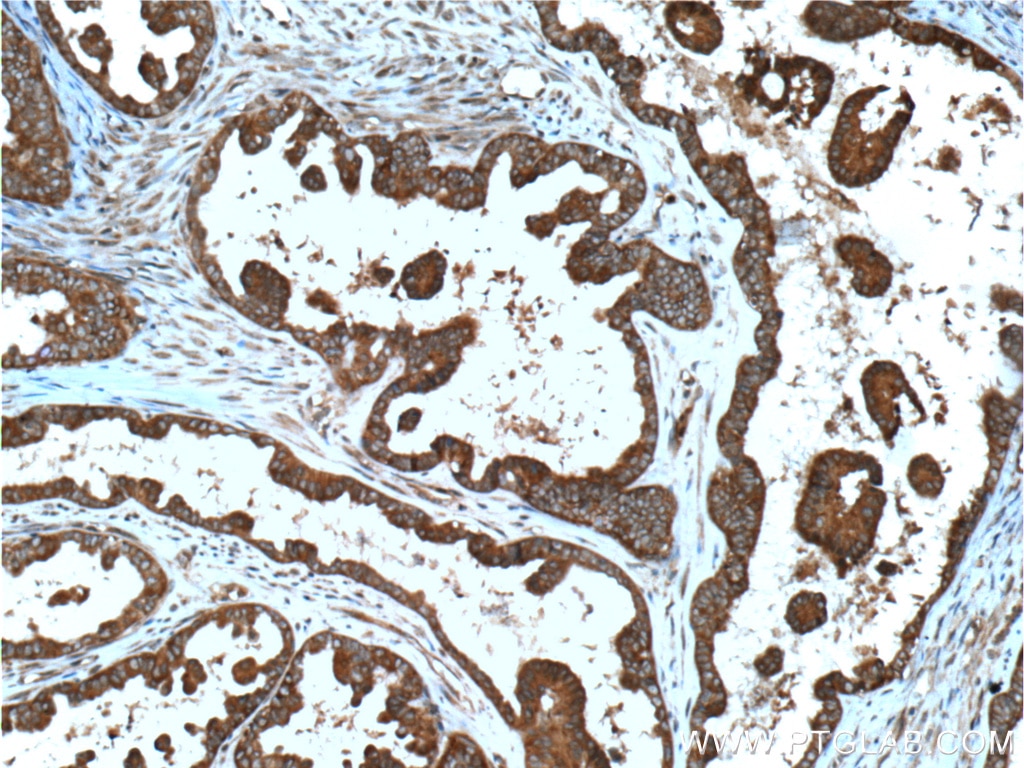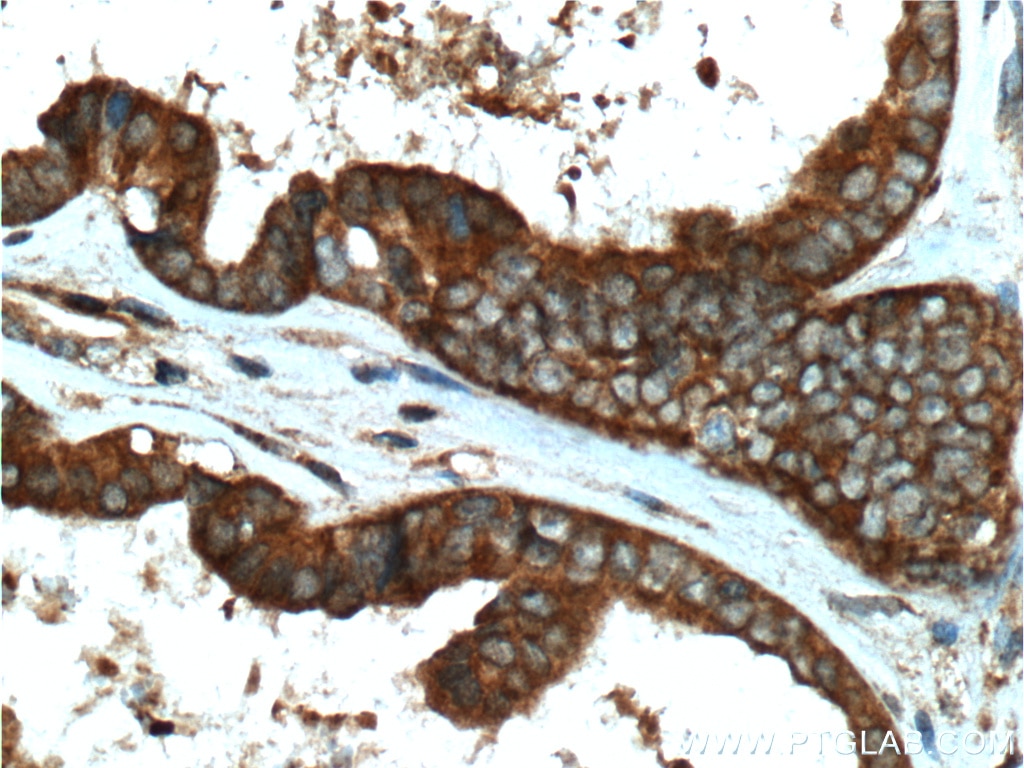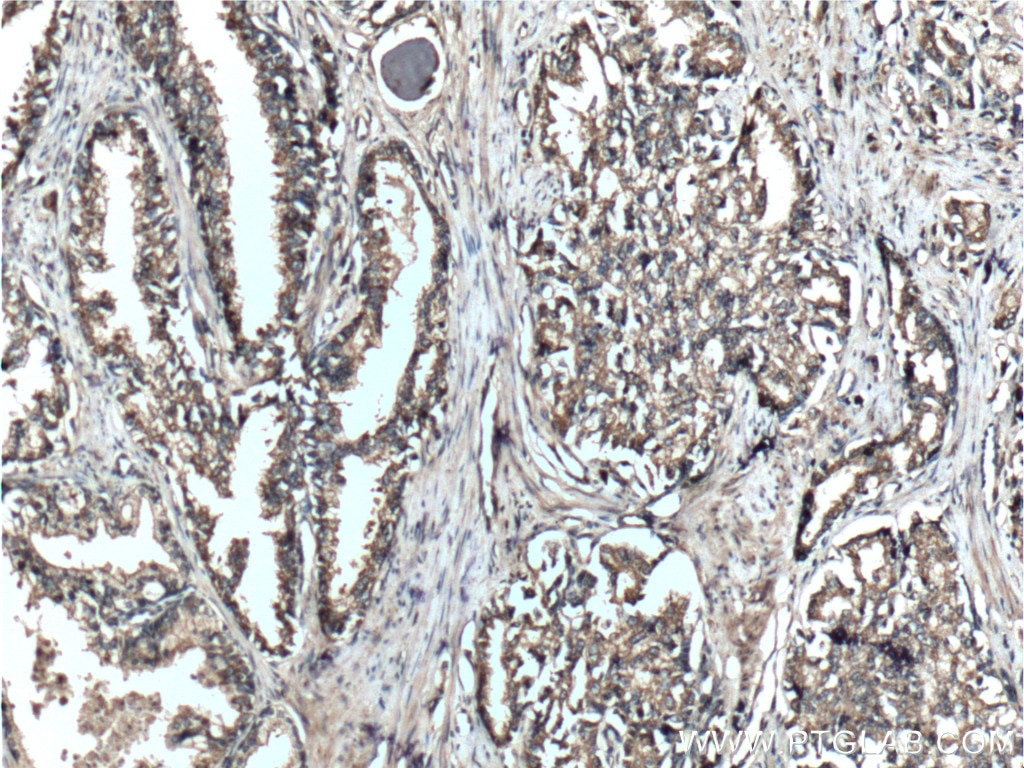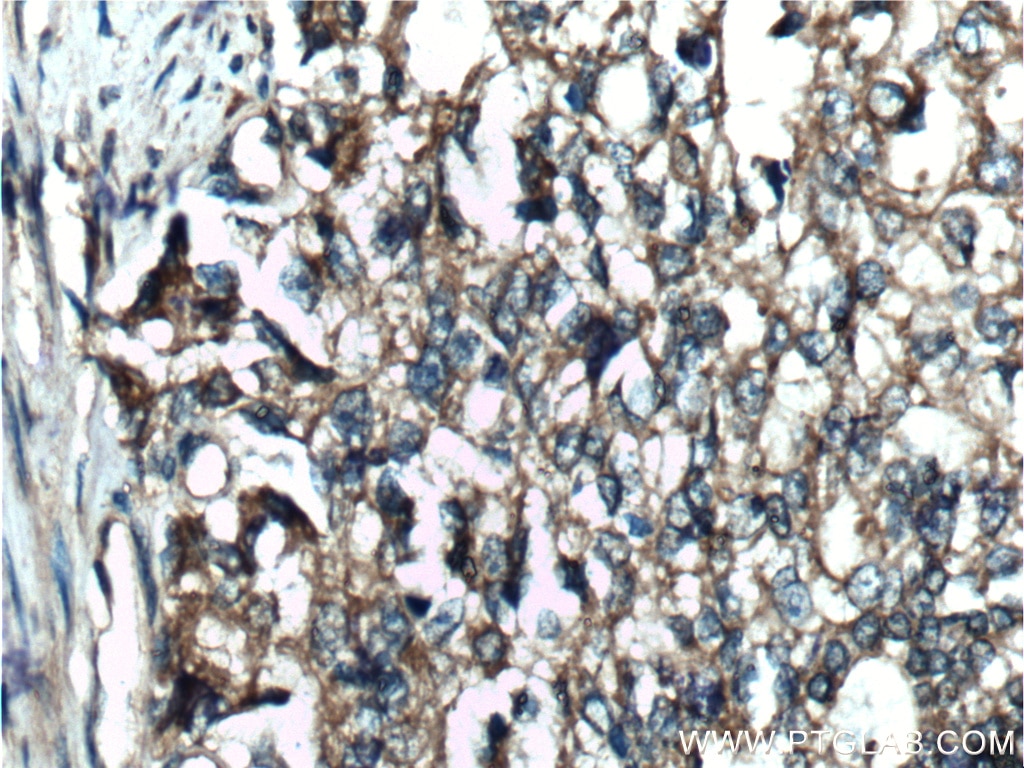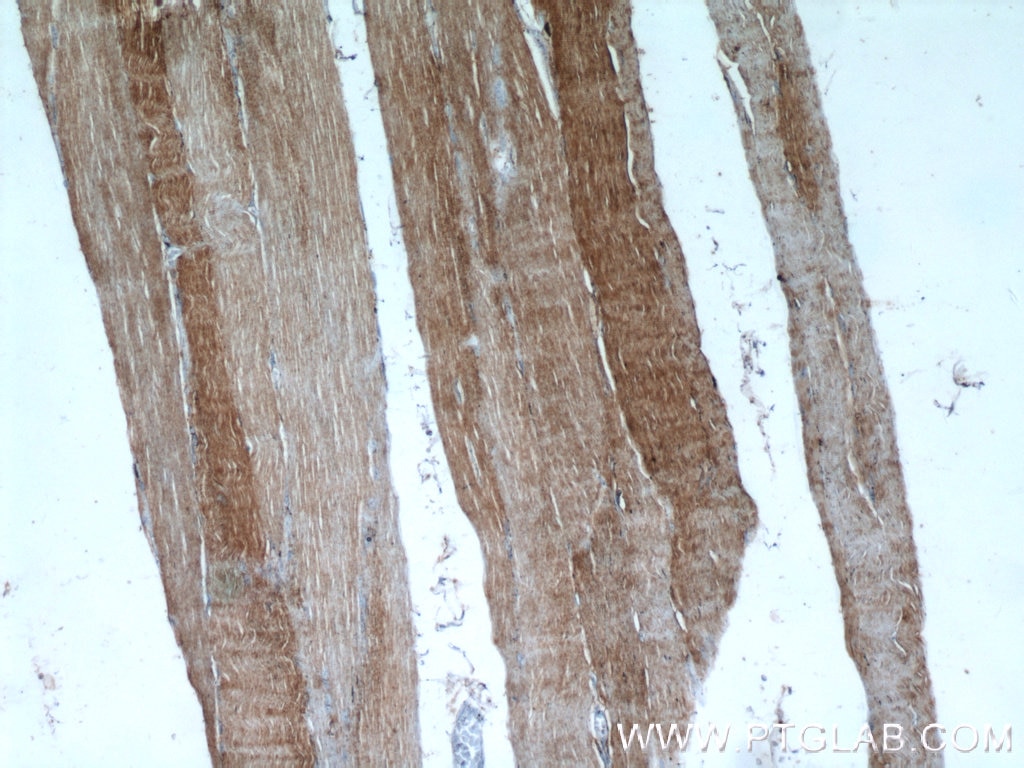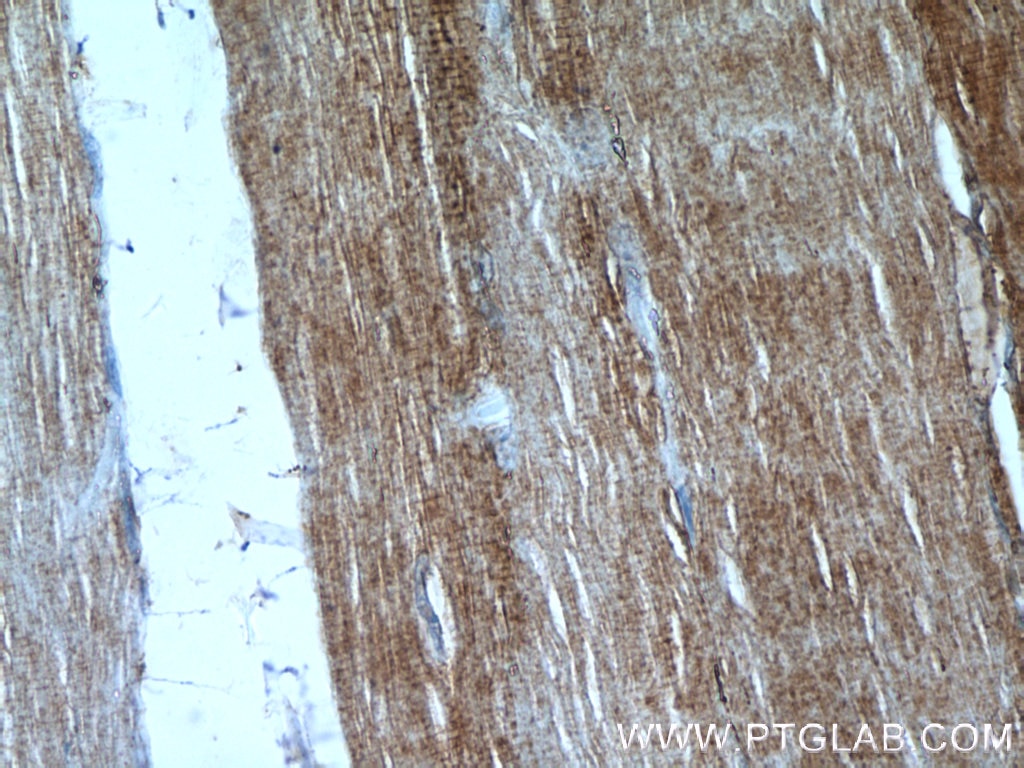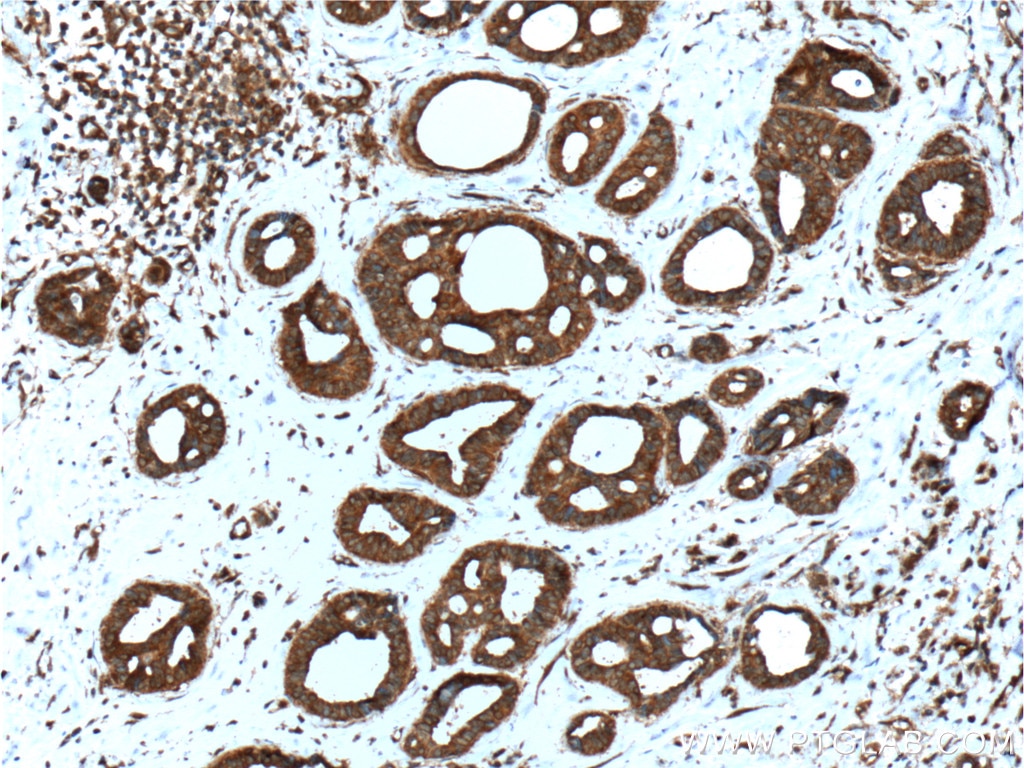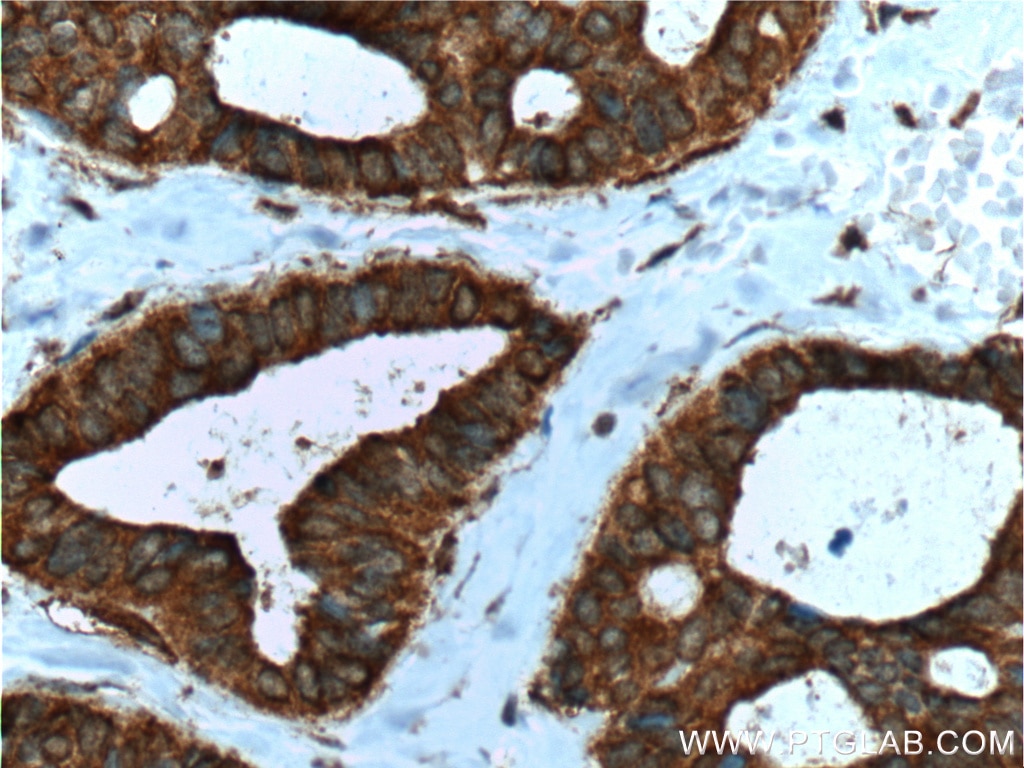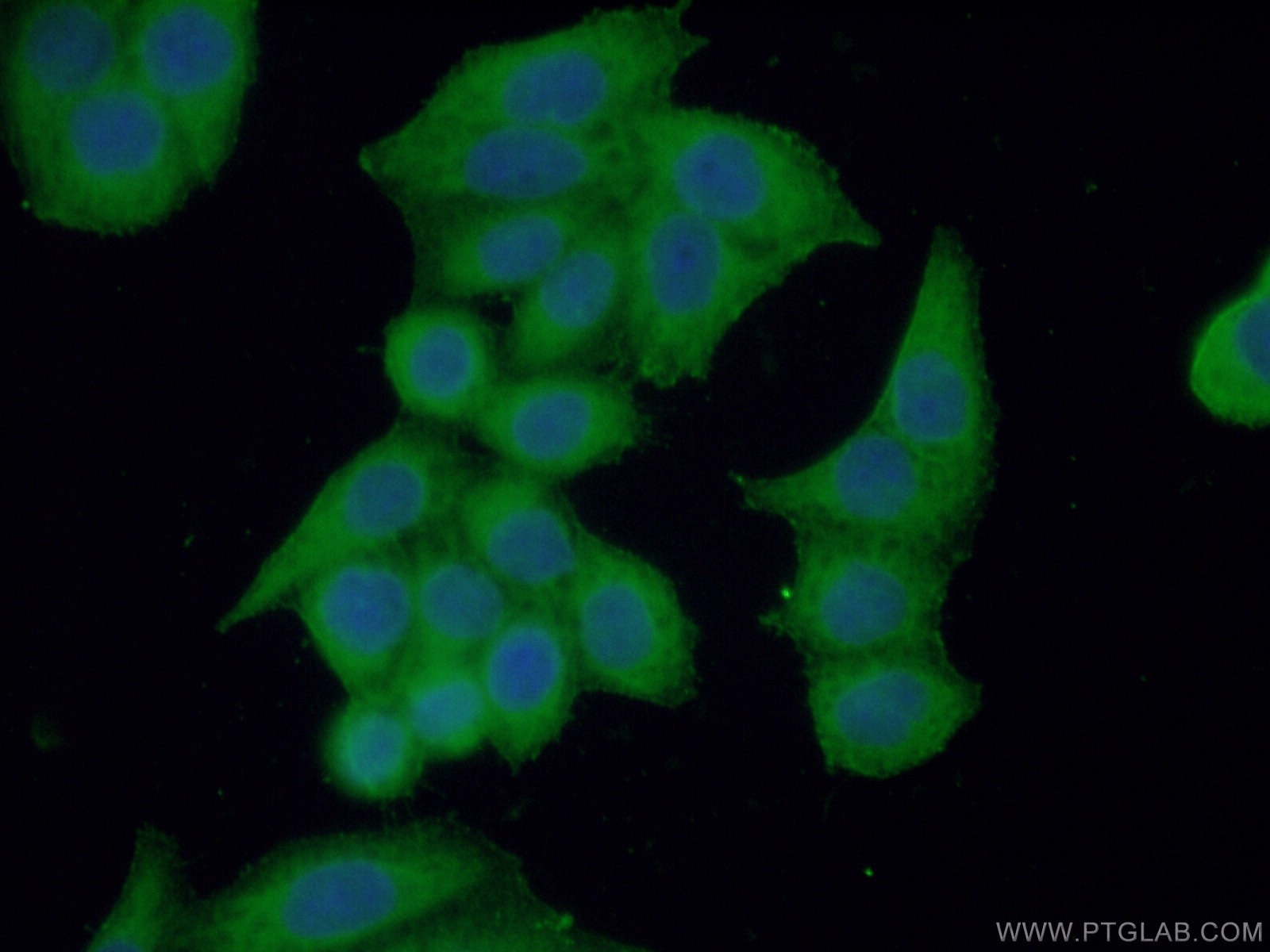Tested Applications
| Positive WB detected in | HEK-293 cells, HEK-293T cells |
| Positive IP detected in | HeLa cells, HEK-293T cells |
| Positive IHC detected in | human ovary tumor tissue, human breast cancer tissue, human prostate cancer tissue, human skeletal muscle tissue Note: suggested antigen retrieval with TE buffer pH 9.0; (*) Alternatively, antigen retrieval may be performed with citrate buffer pH 6.0 |
| Positive IF/ICC detected in | HeLa cells |
Recommended dilution
| Application | Dilution |
|---|---|
| Western Blot (WB) | WB : 1:150-1:600 |
| Immunoprecipitation (IP) | IP : 0.5-4.0 ug for 1.0-3.0 mg of total protein lysate |
| Immunohistochemistry (IHC) | IHC : 1:50-1:500 |
| Immunofluorescence (IF)/ICC | IF/ICC : 1:50-1:500 |
| It is recommended that this reagent should be titrated in each testing system to obtain optimal results. | |
| Sample-dependent, Check data in validation data gallery. | |
Published Applications
| WB | See 4 publications below |
| IHC | See 1 publications below |
| IF | See 1 publications below |
Product Information
21861-1-AP targets DOCK4 in WB, IHC, IF/ICC, IP, ELISA applications and shows reactivity with human samples.
| Tested Reactivity | human |
| Cited Reactivity | human |
| Host / Isotype | Rabbit / IgG |
| Class | Polyclonal |
| Type | Antibody |
| Immunogen | DOCK4 fusion protein Ag16516 Predict reactive species |
| Full Name | dedicator of cytokinesis 4 |
| Calculated Molecular Weight | 2011 aa, 230 kDa |
| Observed Molecular Weight | 225 kDa |
| GenBank Accession Number | BC117689 |
| Gene Symbol | DOCK4 |
| Gene ID (NCBI) | 9732 |
| RRID | AB_2878930 |
| Conjugate | Unconjugated |
| Form | Liquid |
| Purification Method | Antigen affinity purification |
| UNIPROT ID | Q8N1I0 |
| Storage Buffer | PBS with 0.02% sodium azide and 50% glycerol , pH 7.3 |
| Storage Conditions | Store at -20°C. Stable for one year after shipment. Aliquoting is unnecessary for -20oC storage. 20ul sizes contain 0.1% BSA. |
Background Information
DOCK4, originally identified as a product of a gene which is deleted during tumor progression, is a member of DOCK180 family proteins. Dock4 has been found recently to be associated with several neuropsychiatric diseases, including autism, dyslexia, and schizophrenia. Multiple studies in fibroblasts then confirmed that Dock4 is capable of controlling cell migration by transducing several upstream signals, such as Wnt, platelet-derived growth factor, and RhoG, toward activation of Rac1. Mutations in this gene have been associated with ovarian, prostate, glioma, and colorectal cancers.
Protocols
| Product Specific Protocols | |
|---|---|
| WB protocol for DOCK4 antibody 21861-1-AP | Download protocol |
| IHC protocol for DOCK4 antibody 21861-1-AP | Download protocol |
| IF protocol for DOCK4 antibody 21861-1-AP | Download protocol |
| IP protocol for DOCK4 antibody 21861-1-AP | Download protocol |
| Standard Protocols | |
|---|---|
| Click here to view our Standard Protocols |
Publications
| Species | Application | Title |
|---|---|---|
Proc Natl Acad Sci U S A Up-regulated cytotrophoblast DOCK4 contributes to over-invasion in placenta accreta spectrum. | ||
Front Cell Dev Biol USP36-Mediated Deubiquitination of DOCK4 Contributes to the Diabetic Renal Tubular Epithelial Cell Injury via Wnt/β-Catenin Signaling Pathway. | ||
Science Multiscale photocatalytic proximity labeling reveals cell surface neighbors on and between cells |
